Pink Floyd’s discography is one of rock’s most intricate tapestries, woven with experimental sounds, philosophical lyrics, and evolving musical identities. While the band’s music evolved and morphed through line-up changes and shifting inspirations, each album holds its own as a reflection of a particular phase in the band’s storied career. Let’s dive into the ranking, starting from the lesser-known waters and reaching the undisputed classics.
15. The Endless River (2014)

The Endless River is Pink Floyd’s last studio album and, fittingly, a goodbye to the band’s instrumental explorations, paying homage to the late keyboardist Rick Wright. The mostly instrumental album, pieced together from Division Bell outtakes, is atmospheric but feels like a coda rather than a chapter. It revisits the band’s ambient side, though it lacks the powerful narratives that fueled their peak. Ultimately, it’s a meditative and nostalgic listen, best suited for longtime fans.
14. Ummagumma (1969)
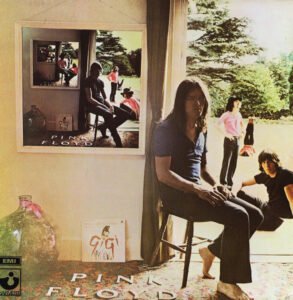
While Ummagumma offers a unique window into Pink Floyd’s early experimental phase, the double album can feel disjointed and overly self-indulgent. The first half consists of live recordings that capture their raw energy, but the second half, which gives each member a side of solo material, is a mixed bag. Experimental yet unfocused, Ummagumma is a testament to Floyd’s willingness to break boundaries but also reveals the growing pains in their journey.
13. A Momentary Lapse of Reason (1987)

Pink Floyd’s first album without Roger Waters, A Momentary Lapse of Reason feels like David Gilmour finding his footing with the Floyd brand. The album has a polished, synth-laden sound characteristic of the ’80s, which somewhat undercuts the essence that fans associate with Pink Floyd. Songs like “Learning to Fly” are memorable, but overall, the album feels transitional—bridging Gilmour’s solo ambitions with Pink Floyd’s legacy.
12. More (1969)
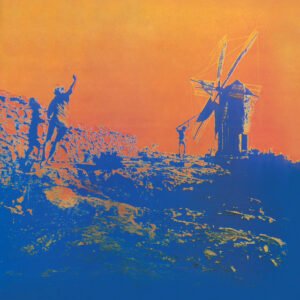
As a soundtrack to the French film of the same name, More captures Pink Floyd in an exploratory phase, blending folk with psychedelic rock in an ethereal yet inconsistent fashion. Tracks like “Cymbaline” and “Green Is the Colour” stand out, hinting at future successes in atmospheric composition. However, the album’s fragmented nature makes it more of a curiosity than a cornerstone in their catalog.
11. The Final Cut (1983)
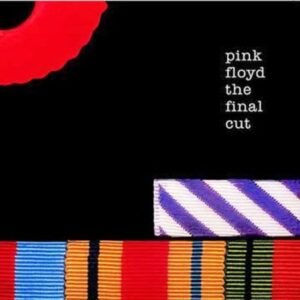
The Final Cut often feels like a Roger Waters solo album—dominated by his political and personal reflections. Born out of Waters’ disenchantment with the Falklands War, it’s bleak and introspective. While songs like “The Gunner’s Dream” and “Two Suns in the Sunset” offer poignant moments, the album lacks the collaborative spirit of earlier works. Still, its lyrics remain some of Waters’ most haunting, making it an underrated gem for those who enjoy introspective rock.
10. Atom Heart Mother (1970)
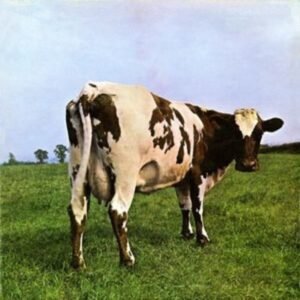
Atom Heart Mother is Pink Floyd’s venture into the avant-garde, with the ambitious, orchestral title suite leading the charge. The symphonic fusion of rock, orchestration, and choir is fascinating, though it sometimes feels labored. The album is a bold experiment that reflects Floyd’s commitment to pushing boundaries, but it’s clear they were still searching for their signature sound.
9. Obscured by Clouds (1972)

Another soundtrack, this time for the film La Vallée, Obscured by Clouds finds Pink Floyd at a crossroads, blending their earlier psychedelic leanings with emerging progressive elements. Songs like “Wot’s… Uh the Deal” show a burgeoning warmth and accessibility, foreshadowing their success in The Dark Side of the Moon. It’s a solid, underrated collection of songs that finds the band in a reflective mood.
8. A Saucerful of Secrets (1968)
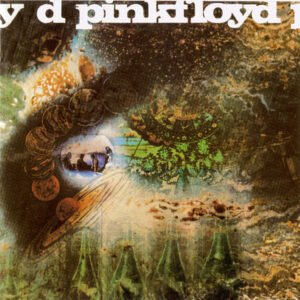
A Saucerful of Secrets marks the transitional period from Syd Barrett’s leadership to a group-led approach that defined Pink Floyd’s later sound. With standout tracks like “Set the Controls for the Heart of the Sun” and the sprawling title track, the album is a bold leap into the unknown. While not as refined as their later works, it captures the genesis of the band’s experimental ethos.
7. The Division Bell (1994)
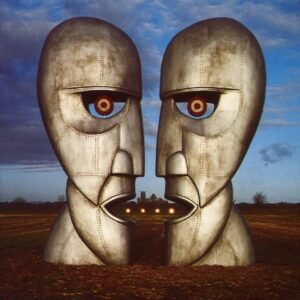
The Division Bell has a warmth and cohesion missing from Momentary Lapse, echoing the classic Floyd sound of rich textures and contemplative lyrics. Themes of communication and reconciliation resonate, especially in tracks like “High Hopes” and “Keep Talking.” It’s a satisfying farewell from the Gilmour-led era, offering a mature, reflective version of Pink Floyd.
6. The Piper at the Gates of Dawn (1967)
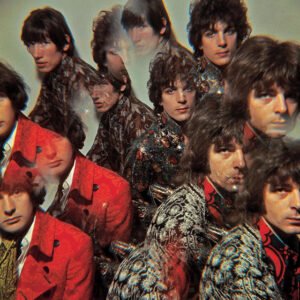
The debut album The Piper at the Gates of Dawn is a psychedelic masterpiece crafted under the unique vision of Syd Barrett. Tracks like “Astronomy Domine” and “Interstellar Overdrive” embody the psychedelic spirit of the 1960s and Barrett’s creative energy. It’s experimental, whimsical, and essential in understanding Floyd’s roots, even if it bears little resemblance to the band’s later sound.
5. The Dark Side of the Moon (1973)
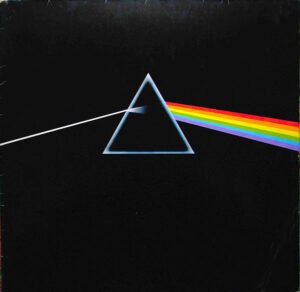
What can be said about The Dark Side of the Moon that hasn’t already been said? This groundbreaking album combines technical innovation with thematic depth, addressing mental illness, greed, and mortality. Tracks like “Time” and “Us and Them” capture universal truths, with production quality and songwriting that set a new standard for rock. Its timeless appeal, however, places it just outside the top four—phenomenal but eclipsed by Floyd’s later thematic daring.
4. Meddle (1971)

Meddle marks a pivotal moment for the band, with the sprawling “Echoes” heralding their full embrace of progressive rock. The album balances beauty and foreboding, with tracks like “One of These Days” showcasing their newfound mastery of sonic landscapes. Meddle is where Floyd’s identity truly crystallized, setting the stage for their golden era.
3. The Wall (1979)

A rock opera of towering ambition, The Wall is Roger Waters’ magnum opus—a psychologically charged, semi-autobiographical exploration of alienation. Classics like “Comfortably Numb” and “Another Brick in the Wall, Part 2” are dramatic yet deeply relatable. The album’s narrative scope and musical richness make it one of rock’s defining achievements, solidifying Pink Floyd’s role as both innovators and storytellers.
2. Animals (1977)
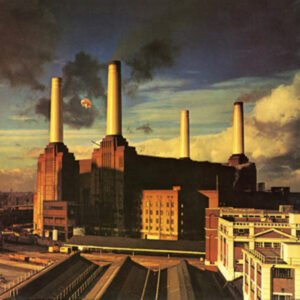
Animals is Pink Floyd at their most fiercely political, with a ferocity that sets it apart. Using Orwellian allegory, Waters attacks societal power structures in tracks like “Dogs” and “Pigs (Three Different Ones).” Musically, it’s gritty and sophisticated, showcasing some of Gilmour’s most iconic guitar work. The album’s cynicism feels oddly prophetic, resonating with new generations and making it Floyd’s sharpest critique of society.
1. Wish You Were Here (1975)
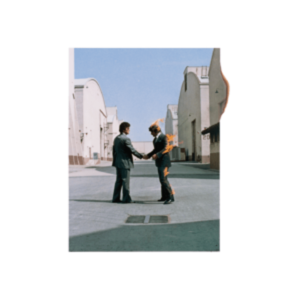
Wish You Were Here tops the list, balancing Floyd’s technical mastery with emotional depth. The album pays homage to Syd Barrett and addresses themes of loss, disillusionment, and the music industry’s corruption. “Shine On You Crazy Diamond” is both a farewell and a celebration, while “Wish You Were Here” remains one of rock’s most poignant ballads. Seamless and sincere, Wish You Were Here encapsulates everything that made Pink Floyd extraordinary.
